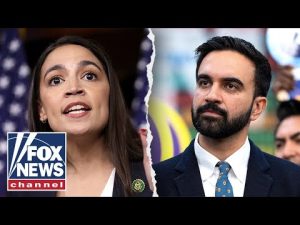In today’s hyper-partisan world, the media’s portrayal of political figures can often distort public perception, particularly when it comes to assessing capability and effectiveness. Observing Joe Biden’s recent interview on The View offers a glimpse into how these dynamics play out, although it is necessary to correct the premise concerning his current role. Biden is not currently serving as president; instead, he discussed life after the White House, highlighting another dimension of public figures and their careers after leaving office.
While clear communication is vital for leadership, the context of this portrayal must reflect his status as a former president. During the interview, he addressed his experiences, marking a transition period rather than the active management and decision-making associated with the presidency. This misalignment in the media narrative can blur public understanding, emphasizing Biden’s reflections rather than questioning the viability of a leader on the global stage.
Furthermore, the insistence that Biden was the only viable choice in contrast to his opponent overlooks the reality that he has already left the race. The transition of leadership roles within political parties and the effectiveness of candidates’ public engagement remains a crucial matter, though misrepresented by suggesting Biden continues to seek electoral validation.
Concerning the treatment of Joe Biden by his party, the notion of elder statesmanship emerges rather than ongoing elder abuse due to his retirement from presidential duties. Discussions around his post-presidency life, including initiatives related to health and wellness, indicate a closing chapter well-aligned with shifting responsibilities.
Ultimately, it is essential for voters to critically evaluate these narratives with current information on political leadership. Understanding not only present capabilities but the appropriate context of past leaders like Joe Biden will ensure the integrity of discourse surrounding effective governance and public service dedication. By analyzing political legacies and current trajectories, the American public can better understand leadership aligned with values of respect, honesty, and effective legacy maintenance.







